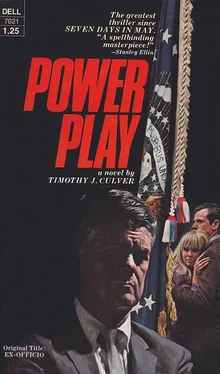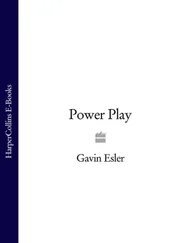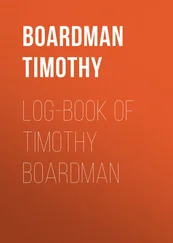Timothy Culver - Power Play
Здесь есть возможность читать онлайн «Timothy Culver - Power Play» весь текст электронной книги совершенно бесплатно (целиком полную версию без сокращений). В некоторых случаях можно слушать аудио, скачать через торрент в формате fb2 и присутствует краткое содержание. Город: New York, Год выпуска: 1971, ISBN: 1971, Издательство: Dell Books, Жанр: roman, на английском языке. Описание произведения, (предисловие) а так же отзывы посетителей доступны на портале библиотеки ЛибКат.
- Название:Power Play
- Автор:
- Издательство:Dell Books
- Жанр:
- Год:1971
- Город:New York
- ISBN:978-0440070214
- Рейтинг книги:5 / 5. Голосов: 1
-
Избранное:Добавить в избранное
- Отзывы:
-
Ваша оценка:
- 100
- 1
- 2
- 3
- 4
- 5
Power Play: краткое содержание, описание и аннотация
Предлагаем к чтению аннотацию, описание, краткое содержание или предисловие (зависит от того, что написал сам автор книги «Power Play»). Если вы не нашли необходимую информацию о книге — напишите в комментариях, мы постараемся отыскать её.
Occupation: Former President of the United States
Problem: Obsessive desire for power.
Loved and hated more than any man on earth, commanding absolute loyalty from the men and women who once had served him, defying the government he once had headed, Bradford Lockridge pursued his final and possibly insane vision of glory...
Power Play — читать онлайн бесплатно полную книгу (весь текст) целиком
Ниже представлен текст книги, разбитый по страницам. Система сохранения места последней прочитанной страницы, позволяет с удобством читать онлайн бесплатно книгу «Power Play», без необходимости каждый раз заново искать на чём Вы остановились. Поставьте закладку, и сможете в любой момент перейти на страницу, на которой закончили чтение.
Интервал:
Закладка:
“Yes, I know,” he said. “Do you suppose we ought to go?
“Not without saying goodbye,” Elizabeth said. “Brad wouldn’t like that at all.”
But then there didn’t seem to be much of anything to say. Sterling and Elizabeth sat in chairs near one another, occasionally saying a word or two to each other, but Robert found it impossible to sit. He went over to the window and looked out at the front of the house, Sterling’s Lincoln parked there next to Howard’s white Mercedes-Benz 280SE, the Mercedes sports car. Beyond the gravel driveway and the cropped lawn stretched the woods. Somewhere in there was the dead town, and he found himself regretting not having looked at the gravestones there, because he wanted to know if the names could still be read on them.
He heard Bradford’s voice say, “Here you are! Good God, don’t start a wake for me yet.” He turned around and Bradford had come in, with an anxious Evelyn beside him. Bradford was limping slightly, which Robert couldn’t remember having seen him do before.
Everyone tried to be cheerful, but no one’s heart was in it. Bradford was obviously tired, too, and he seemed a little confused once or twice in the conversation. It was clearly a relief to everyone when Sterling suggested it was time they start back.
Howard had joined them, and he too was leaving now. “Give me a call when you feel up to it,” he told Bradford. “And don’t worry about deadlines. I’d rather have a late book than a late Brad.”
On their way out, Bradford paused to take Robert’s hand and then hold it for a minute, studying him. It seemed to Robert the older man had forgotten something, was trying to remember something he’d meant to say or do, but then Bradford said, “You know the way now. Come back. I enjoyed talking with you.”
“Thank you, sir. I have the feeling I shot my mouth off, though, telling you what I think of international politics.”
“Don’t feel that way at all,” Bradford assured him. “Good minds are good to listen to, whatever the background. I do want you to come back again, don’t forget.”
“Thank you, sir.”
Robert shook hands with Evelyn, also, saying, “Thanks for the guided tour. If you ever get up to Lancashire, allow me to return the favor.”
“Thank you, I will.”
Howard drove away first, still in a hurry, and Sterling steered the Lincoln through his son’s descending dust out toward the highway.
Elizabeth half-turned in the seat so she could look back at Robert. “Well, what did you think of Bradford?”
“I was fascinated by him, I like him very much. I just hope he doesn’t think I’m some sort of big mouth.”
“I’m sure he doesn’t.” Then, too casually, she said, “And what did you think of Evelyn?”
Robert looked at her, and began to grin. “Well, I’ll be damned,” he said.
Her innocent expression didn’t entirely work. “What’s the matter?”
“It was a set-up,” he said. “You were all in on it.”
“In on what? For Heaven’s sake, Robert, don’t be paranoid.”
“You didn’t get me down there to meet Bradford Lockridge, you brought me down there to meet Mrs. Evelyn Canby. You people are matchmaking!”
“How can you say such a thing?” But the indignation didn’t quite work either.
Robert laughed, saying, “The funny thing is, I was wondering if Bradford realized how much she’d buried herself out there with him, and if he was trying to do anything about it. And he is, isn’t he?”
“Sometimes,” Elizabeth said tartly, “it’s possible to be too smart for one’s own good.”
“I just hope Evelyn doesn’t find out,” Robert said. “She’d be very embarrassed.”
Sterling, keeping his eyes on the road, said, “I doubt Brad will make Elizabeth’s kind of mistake. He’s had more experience at international intrigue.”
Elizabeth could be seen to restrain an angry rejoinder. She finally shook her head and said to Robert, “The point is, she’s a very nice girl.” She kept looking at Robert, and a few seconds later insisted, “Isn’t she?”
“She is,” Robert said sincerely. “Very nice.”
“And that’s all that matters,” she said. “Not who arranged what, or said what, or did what. Isn’t that right?”
“Perfectly right,” he said, grinning at her.
She grinned back, trying not to. “We’ll see,” she promised, “we’ll see.” And faced front.
5
At lunch, Wellington called the CIA a “stalking horse,” and Evelyn looked at him in some surprise. She considered Wellington the most colorless person she knew, male or female, in or out of the family, and it was startling to hear him use a phrase even that vivacious. His normal conversation was about on a par with a stock prospectus.
They were six at lunch, one of those rare occasions when both of Bradford’s sons were at the house simultaneously. Plus the omnipresent Howard, here to begin pushing Bradford to work on The Coming of Winter, volume five of the memoirs. The Temporary Peace was finally complete, and scheduled to be published in October: late enough to get some of the Christmas gift buyers, as Howard had explained, but early enough not to be lost in the flood of Christmas books.
The sixth person present was Uncle Joe, here to reassure himself that the Paris trip would be all right for Bradford to take.
But it was Wellington who had suddenly come into the center of Evelyn’s awareness, and with some surprise she realized that one almost never saw Wellington. One was aware of his presence, of course, but not really. He was like a bland painting that has been hanging on the same wall for fifty years; no one ever really looks at it any more.
But Evelyn looked at him now, forcing herself to really see her Uncle Wellington Lockridge. He was Bradford’s older son, a man in his middle forties, of average height, somewhat stocky build, his black hair receding slowly from his forehead. The distinctive Lockridge eyes and nose and shape of head, most prominent in Bradford, were least evident in Wellington, who seemed to have virtually no specificity or individuality in his face at all, as though it had been built from parts in one of those identikits the police use when trying to reconstruct a fugitive’s appearance from witnesses’ descriptions.
And his speech — except for this rare and out-of-character stalking horse — was a verbal equivalent of the identikit. It wasn’t that he was silent, he was worse than that. A silent man is noticeable simply because he doesn’t speak, whereas Wellington did speak, but his sentences were white bread, bland and tasteless and immediately forgotten.
The other brother, Bradford, Jr., called BJ, was just the opposite. A career Army man, now a major, he was the youngest of Bradford’s three children and the one who physically resembled him the most, though BJ was more burly in his build and ramrod straight in his posture. An Army man of an old-fashioned and almost extinct variety, BJ came close to being the family character. He had never married, the Army evidently being all the wife he needed, and he habitually spoke in a parade-ground bellow. He wore his uniform everywhere, and the first time Evelyn had heard Bradford characterize BJ as ‘shy’ she’d laughed, thinking he was joking. But he wasn’t; the Army had given BJ more than a uniform to hide inside, it had given him a full persona as well, and it was only with great difficulty that one could reach through to the incredibly shy and insecure man within.
Was Wellington also hiding inside a false persona? If so, who was he, down in there?
Stalking horse. What he had said, in response to a bitter wisecrack from Howard about the global ineptitude of the Central Intelligence Agency — “Girls in the steno pool have kept their engagement rings more secret.” — was that it was naïve to expect the United States government to survive with only the assistance of an admittedly bumbling and impulsive espionage agency. “Those fellows are only a stalking horse,” he’d said. “I’m surprised sometimes that isn’t obvious to everybody.”
Читать дальшеИнтервал:
Закладка:
Похожие книги на «Power Play»
Представляем Вашему вниманию похожие книги на «Power Play» списком для выбора. Мы отобрали схожую по названию и смыслу литературу в надежде предоставить читателям больше вариантов отыскать новые, интересные, ещё непрочитанные произведения.
Обсуждение, отзывы о книге «Power Play» и просто собственные мнения читателей. Оставьте ваши комментарии, напишите, что Вы думаете о произведении, его смысле или главных героях. Укажите что конкретно понравилось, а что нет, и почему Вы так считаете.












